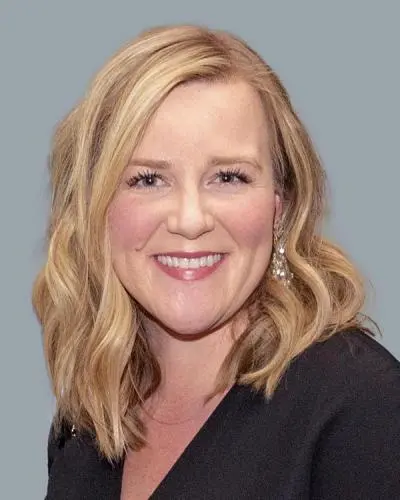As a veteran of the U.S. Marine Corps, Mari Borrero knows a thing or two about stepping up to a challenge. She describes her time in the military as “one of those milestones that changes your life,” and credits the experience with turning her from a self-described “entitled teenager” into the woman she is today: fearless, bold and relentless in pursuit of her dreams.
A career in the construction industry was never on the table for Borrero, who, after being honorably discharged from the Marine Corps, worked as a hospice-care coordinator and then a teacher in support of her then-third-grade son. The common thread in all these occupations? A genuine desire to put the needs of others before her own. Today, Borrero says she can’t imagine doing anything other than what she now calls work—owning and operating a construction business, Auburn, Washington–based American Abatement & Demo.
Easing Transitions
Born in Bayamón, Puerto Rico, Borrero was five when her mother moved the family to Dallas to seek life-saving treatment at Children’s Medical Center Dallas for her brother, who had a rare kidney disease. A local church supported the family, providing housing, food and clothing until they were able to transition into their own space.
After graduating from high school in Dallas, Borrero began college at East Texas State University (today known as Texas A&M at Commerce), where she “partied harder than I worked,” she says. Realizing she needed something different, Borrero left school and enlisted in the Marine Corps, serving two years at Camp Lejuene in North Carolina and then another two years at Parris Island, South Carolina. Upon her discharge, she returned to finish her degree at Texas A&M at Commerce while also serving in the Army National Guard.
When she graduated in 2003, Borrero began working with her mother’s Dallas-based home health agency. While the shift from E4 corporal in the Marine Corps to hospice-care coordinator may not seem like the most straightforward path, for Borrero, it made perfect sense. “In the military, you learn very quickly that the most important mission is to have each other’s backs, because we are a family,” she says. “Working with people nearing the end of their lives taught me that death doesn’t have to be this dark, ugly thing. It really can be quite beautiful in that it brings families together and helps to ease the transition from life into death for their loved ones.”
The idea of easing transitions carried over into her personal life as well. When her son entered kindergarten in Texas, Borrero noticed fairly quickly that he was struggling to learn and being removed from class for large chunks of time due to “rowdy” behavior. She eventually realized that the problem was a lack of proper support. Spanish was her son’s primary language, and that barrier caused him frustration that his teachers simply didn’t understand. Borrero’s solution: become a teacher herself.
“I knew what my son needed was to see that he had adults around him in that environment who really cared for him,” Borrero says. “The certification process usually takes about a year and a half; I finished it in eight months.” She was able to transfer her son to the school where she was hired as a dual-language teacher, and saw an immediate turnaround in his comfort level and performance.
Borrero gave the same care and support to each of her students, including volunteering to run after-school activities. “Teachers spend even more time with kids than their parents do in many cases,” she says, “and it’s so important to me that they know they have a loving, caring adult there who has their back.” That attitude earned Borrero a “Teacher of the Year” honor in her very first year in the classroom.
‘I’m a Go-Getter’
During her time in education, Borrero moved to Washington state, where she retained her teaching certification. She realized that a number of her second-grade students faced tough challenges in their own lives, including one very close to her own heart: having an incarcerated parent. Her husband, Aaron Borrero, spent time behind bars, and she became passionate about helping children with incarcerated parents. She became a teacher trainer on cultural diversity in the classroom, even going so far as to write two books: Daddy Has a New Home, Not a New Heart, to help kids understand that while their parent might not be home, they still love them; and Our First Visit, which helps prepare children for their first visit with a parent who is behind bars.
When Aaron was granted clemency from Washington Gov. Jay Inslee, he began working a job in construction, but he couldn’t shake the feeling that something was off. “He would come home every night commenting that he didn’t like the way his employer allowed things to happen in the workplace, that he knew there was something better out there for him,” Borrero says. “Something had to give, because he just wasn’t happy. I finally said to him: ‘Listen. We’re going to fix this. You’ve come too far to settle. Let’s figure this out.’”
From there came the idea to start their own construction company. “I had zero background in construction, and I definitely hadn’t wrapped my head around the idea in the beginning,” Borrero says. “But one thing I know about me is that I’m a go-getter. I might have lacked the construction component, but that was fine—I’m a teacher, I love learning. I’d get the education.”
Borrero finished out her 2017 teaching contract while working with her husband to get their general contracting license, and later that same year the pair founded American Abatement & Demo. Now headquartered in a beautiful office space in downtown Auburn, Washington, AAD has grown from scraping by in the Borreros’ garage to today earning more than $2.3 million in annual revenue. The company performs services ranging from asbestos testing and removal, to COVID-19 sanitization, to mold and lead abatement, demolition and more.
The Wisdom of Experience
Starting a new business always presents challenges, and Borrero has learned that while she is incredibly self-reliant and unafraid to tackle obstacles, the advice and counsel of her mentors has made all the difference, including Shannon Gustine, vice president and district manager with Hensel Phelps. “She has just an incredible amount of knowledge, and just something about the fact that she is another woman in this industry makes it such a cool relationship,” Borrero says. “Nothing I want to ask her is off limits, and there’s a level of comfort there that I feel could only really exist in a female-to-female dynamic.”
Borrero is proud that her mentors have watched her business grow from its infant stages to what she describes as its current “toddlerhood,” and she leans into the fact that they are not helping her “just to check a box.” She adds: “They take it to another level and really, truly use their resources to help me understand what it takes to be a successful contractor.”
When Gustine first met Borrero onsite during a Hensel Phelps renovation project at Queen Anne Elementary School in Seattle—AAD’s first job for a large general contractor—the two just clicked. “There was a clear want on Mari’s part to understand and grow,” Gustine says. “I make the offer of help to a lot of small business owners, but very few actually take me up on it. Mari has been extremely proactive, always willing to ask questions, seek feedback and share her point of view. We both gain a lot of perspective and understanding from our discussions.”
Gustine tries to impress upon her mentees that their perspectives matter. “Diversity is what makes us better,” she says. “Healthy debate serves to create better outcomes by bringing together different thoughts and ideas.”
Borrero agrees. “Getting a different perspective is always a good idea,” she says. “As a small business owner, the ability to tap into some best practices in addition to checks and balances means you do not have to recreate things that have been modified over time for years by larger firms.”
Hurdle After Hurdle
If there’s one lesson to learn from Mari Borrero’s life and career, it would be to never take no for an answer. In the course of establishing their business, she and her husband have met hurdle after hurdle head on, including fighting just to get a seat at the bidding table. “As we started to grow, we knew we wanted to get into government contracting, but I started to notice that even though the contracts specifically laid out terms for using minority contractors, they weren’t choosing us,” she says. “Here I was, a woman-owned, veteran-owned, minority-owned small business, and I just stood there like, why aren’t you choosing me?”
As Borrero became more vocal about being overlooked, people began noticing—but meanwhile, another challenge presented itself: bonding capacity. She started contacting bonding agencies, and one by one was turned down. “Time after time, I called these agencies and we started working together,” Borrero says. “And it would be, ‘Yes, I’m woman-owned. Yes, I’m majority owner of our organization. Yes, we’re a small-business enterprise.’ But then it would come out that my husband had a background, and it was an immediate denial.”
It wasn’t until Borrero began sharing her story with industry colleagues that things took a turn. She spoke with Lilly Keefe, senior small-business specialist at Sound Transit, Seattle’s public transit agency, who took an immediate interest and called a bonding agent Borrero had been in contact with. Keefe relayed Borrero’s story, and immediately the agent called Borrero to say that her bonding had been approved.
Since then, Borrero has made it a point to share her story every chance she gets. “I want other minority contractors to know that, hey, you don’t have to give up just because one person said no,” she says. “Keep telling your story, keep pushing, and know that sometimes, you might have to kick down some doors—but don’t ever let anyone tell you you can’t do it.”
Making a Difference
At the end of the day, Borrero hangs her hardhat on knowing that in her own way, she’s improving her community one individual at a time. AAD prioritizes job opportunities for those who otherwise might not be given a shot, including the formerly incarcerated and military veterans. “I wasn’t a little girl who grew up playing with a toolbelt. Construction was never in my plan,” she says. “But what I do know is that my purpose in this life is to serve others. Construction just happened to be a way that I could do that.”
She believes the reason for her success is simple: She’s just doing the right thing. “No matter how much my company grows, or how financially successful we are, my goal each and every day is to ensure that my employees feel appreciated, and they know that we place our trust in them with absolute confidence,” Borrero says. “Whether they stay with us or move on, the greatest payback from any of this is knowing that I’ve made a difference—and you can’t put a price tag on that.”








